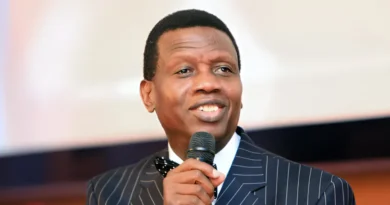How the Church Can Lead the AI Revolution
Artificial intelligence (AI) is transforming the world faster than any invention of our time. Beyond smartphones and streaming services AI is shaping how people live learn and interact. For Christians this rapid change raises an important question. How can the Church use AI responsibly to spread the Gospel without losing sight of human wisdom and divine guidance
This moment calls for careful thought and bold leadership. The Church can either stand back and react to technological change or step forward and shape how AI is used for good.
Understanding the Power and Limits of AI
AI has remarkable potential to help people solve problems improve communication and create new opportunities. Yet it also comes with challenges that affect creativity and critical thinking. Nick Kim a Christian technologist with decades of experience in the field explains that AI is unique because it mirrors human intelligence.
AI is different from any previous invention he said. It takes what is most valuable to us our intelligence and places it in a machine.
This truth reminds believers that while AI can be helpful it can also become harmful if used without wisdom. The Church must approach this tool with discernment ensuring that it serves human development rather than replacing it.
Why the Church Must Take the Lead
Throughout history the Church has used technology to reach more people. The printing press allowed Scripture to spread across nations while radio and television carried the message of Christ into homes. Today AI offers another opportunity for ministry and mission if used thoughtfully.
Kim encourages Christians not to fall behind but to guide how AI is applied in the modern world. This is a time for the Church to lead not to follow. If believers remain silent others will define how AI shapes culture often without regard for faith or morality.
By providing ethical leadership the Church can help build a future where technology reflects compassion truth and respect for human dignity.
ALSO READ: Sadie Robertson Warns Church Against ‘Cancel Culture’
Using AI to Support Ministry Not Replace It
AI can help the Church in practical ways. It can organize sermons create study materials assist with communication or help plan outreach. These tools can free time for pastors and ministry leaders to focus on personal connection and discipleship.
But the danger lies in depending too much on technology. Machines can never replace the Holy Spirit or the human heart. True spiritual growth requires reflection prayer and relationships.
Every believer can pause and ask simple questions.
Am I using this tool to honor God or to avoid thinking deeply
Do I check what AI produces or trust it completely
When I need advice do I turn to God or to a program
Is AI shaping my habits in ways that draw me closer to Christ or lead me away
These questions keep our priorities clear reminding us that technology should always serve faith not the other way around.
Creating a Moral and Spiritual Framework
Because AI has no sense of right or wrong the Church must set the standard for how it is used. This includes teaching ethical values that guide decisions in technology design and policy. Churches can partner with developers’ educators and lawmakers to promote fair safe and transparent uses of AI.
By doing so believers can help shape a digital world that reflects God’s justice creativity and love rather than fear or greed.
Staying Rooted in an Unchanging Truth
Technology will continue to evolve and surprise us but the truth of God remains steady. Hebrews 13 verse 8 says Jesus Christ is the same yesterday today and forever. This verse reminds us that while inventions come and go our foundation in Christ does not change.
AI can be a powerful tool for sharing the Gospel and inspiring hope if used with care humility and wisdom. The Church must not resist innovation but approach it prayerfully leading by example and guided by eternal truth.
As the digital world expands may believers move forward with courage using technology as a servant of faith and a means of love rather than as a master to depend on.
Content Credit: Ohidah Oluwaferanmi
Image Credit: USchristian news.com




